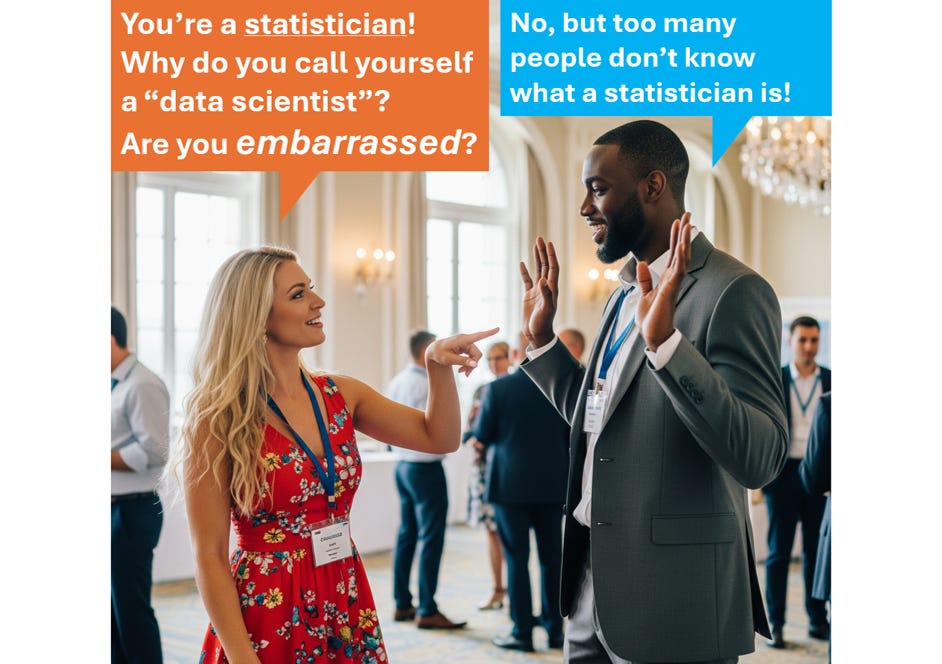What's in a name? Why I call myself a data scientist (sometimes).
Navigating professional titles for clarity in conversations
Am I betraying my profession by calling myself a “data scientist”?
I was talking to my colleague Jenna Sykes at the recent event of the Toronto Applied Biostatistics Association (TABA). (She is a Research Biostatistician at St. Michael’s Hospital and a biostatistics instructor at the University of Toronto.) I was telling her how I describe myself when talking to strangers at networking events.
If I talk to someone who has a technical background or is knowledgeable about data & analytics, I call myself a statistician.
If I talk to someone who does NOT have a technical background and is unfamiliar with data & analytics, I call myself a data scientist. Jenna looked at me with disapproving horror and retorted, “No, you should not!” Her scowl was both scary and hilarious! (Jenna is a courteous and friendly person, and she was exaggerating her indignation in jest.)
On a more serious note, why do I call myself a data scientist (at least some of the time)? I am a classically trained statistician, and I have a Master’s degree in this subject from the University of Toronto. I have much to contribute from this domain, and calling myself something else may devalue the hard-earned knowledge and credibility that I have built for over a decade.
There are several reasons for my decision to call myself a data scientist to people with a non-technical background.
My current job title is “Senior Data Scientist” at Acosta. Thus, it is factually correct to call myself a data scientist.
I have met many people who don’t know what a statistician is - at least until I clarify that it is a practitioner of statistics. Even then, I suspect that they barely know what it means.
Some people have a vague but inaccurate understanding of what statistics is. They connote it with surveys and data entry.
Even some professionals in data and analytics have a limited understanding of what statisticians do. They connote statistics with sampling, P-values, and confidence intervals (or at least the phrase “19 times out of 20”). They seem completely unaware that advanced topics like Monte Carlo simulations, survival analysis, and Bayesian inference are also within the realm of statistics.
To the general public, the term “data scientist” is more self-evident of what I do. They may not know exactly what it means, but they connote it with numbers, data, and something analytical. This is not great, but it is a lot better than not knowing what “statistician” is at all.
Is this the perfect solution? No, but it can stimulate more conversation with strangers. If they are curious, they will ask me more about what I do in my job or how I reached this point in my career. I can then elaborate about my education and work experience in statistics - and hopefully teach them something new.
I encourage you to read my earlier post about it on LinkedIn. It was an attempt to solicit perception from recruiters and hiring managers. Although I did not succeed, I did get many thoughtful comments from statisticians.





